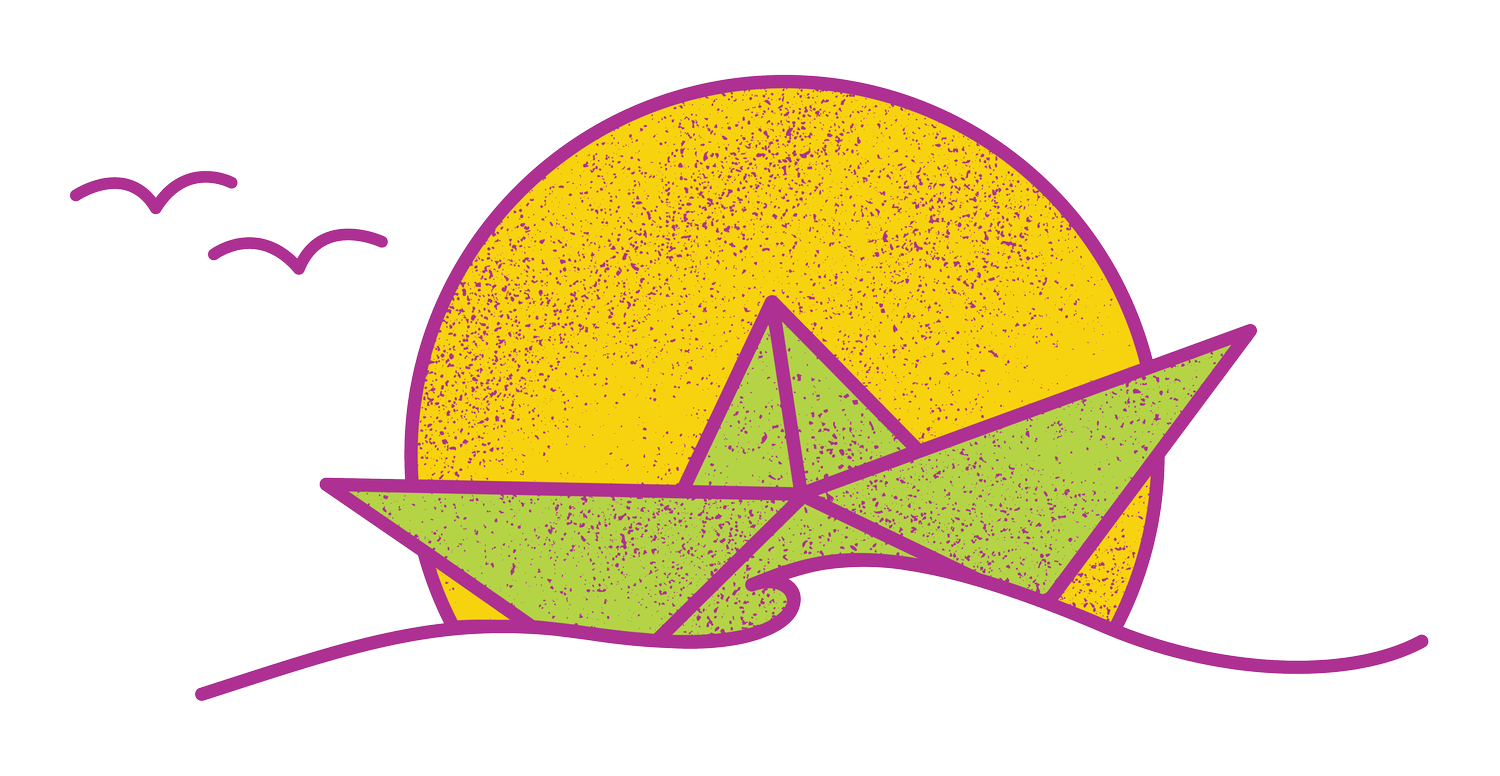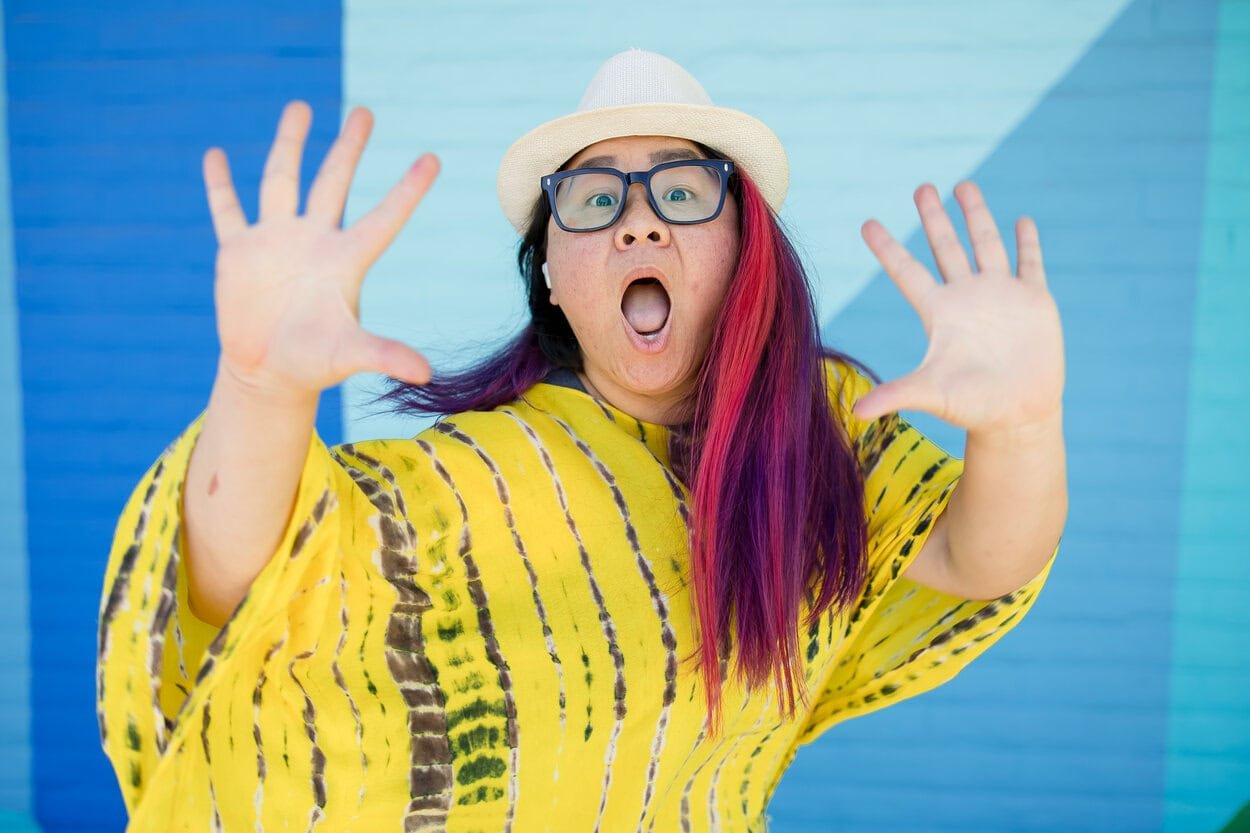Coming out later in life? Love letter from your LGBTQ therapist Vancouver
Coming out later in life can feel like getting hit with a truth bomb you didn’t see coming, even if it’s been quietly ticking in your subconscious for years. Maybe you’re 28 and just now realizing your hetero identity never quite fit.
Or maybe you’re 53, married, and suddenly everything clicks after a conversation, a show, or a look in the mirror you couldn’t unsee. I’ve been there myself, and I’ve also had the honour of walking alongside so many folx navigating this very terrain,
so believe me when I say: you are so not alone.
If that’s you? Hey. You’re not broken, behind, or late. Coming out later in life might not have been the plan, but it’s still your time.
In my work as a queer therapist, I’ve heard it again and again: “I wish I had figured this out sooner.” That feeling is real and so is the grief, the joy, the fear, and the deep breath of finally being able to say, “THIS IS ME”
What Does “Coming Out Later in Life” Even Mean?
Let’s start here: coming out is different for everyone.
Period. There’s no timeline, no “right” way, no magic age where everything falls into place.
That said, when we say “coming out later in life,” we’re usually talking about folks who come out as LGBTQIA2S+ around age 25 and beyond. For some, that’s early adulthood. For others—especially Gen X and Boomers—it might be their 40s, 50s, or 60s.
In my case, I embraced my queerness in my early 30’s
Curious about my coming out story? Check out this article where I went up close and personal about my coming out later in life story and finding an army of chosen family later.
No matter the age, the experience tends to come with a mix of identity upheaval, grief, clarity, and (eventually) liberation.
What’s Most Surprising About Coming Out Later in Life and Starting Anew?
I think a lot of us expect coming out later in life to be a clean before-and-after moment.
Like '“Boom! I’ve said the words, and now I’m free.”
But here’s what often catches people off guard: how messy, bittersweet, and surprisingly beautiful it can be.
Someone once shared with me:
“I told my partner of sixteen years that I am definitively gay. I have considered myself queer since age 12, but coming out later in life to him feels like I have poured honey all over my heart and have filled in the little cracks and crevices that always ached to be filled.”
How tender is that? That image of honey soaking into old wounds.
We don’t talk enough about how healing coming out later in life can be,
even when it rocks the boat.
Yes, there’s pain. Yes, there’s loss. But also? There’s homecoming.
It’s the quiet moments of relief that take you by surprise. The weight you didn’t even realize you were carrying suddenly gone. The softness in your body when you speak your truth out loud, maybe for the first time.
And hey, if you’re curious about my own story, I’ve written a piece about my own coming out later in life. It’s raw, real, and definitely not a linear journey. Maybe it’ll help you feel a little less alone in yours.
Why Shame Hits Hard When You’re Coming Out Later in Life
One of the hardest parts?
Shame.
And it’s sneaky.
Shame shows up in those “I should have known sooner” thoughts.
It bubbles up in grief over time lost, opportunities missed, or relationships changed. It whispers, “You’re too late,” “You’re selfish,” or “Why now?”
Let’s be clear: that shame is not yours to hold.
It’s something you’ve absorbed from heteronormative systems, rigid gender boxes, religious scripts, or cultural expectations.
Unpacking it doesn’t happen overnight, but you can let it go.
Coming out later in life doesn’t mean you were living a lie
It means you were surviving. Doing the best you could with what you had.
And now? Now you have more language, more support, and maybe more courage
to live as your full self.
The Reality of Coming Out Later in Life: Joy, Grief, and Everything Between
Here’s the emotional cocktail many folks describe: deep relief, mixed with a splash of mourning.
Grief for the years spent hiding, masking, or being disconnected from this part of themselves.
Grief for relationships that might (or will) change or end.
Grief for the version of life that won’t play out.
But alongside all that is celebration. Because stepping into your identity, no matter when it happens is something worth honoring.
You’re allowed to be proud and sad. Liberated and disoriented.
It’s not an either/or. And there’s no one way to feel.
Coming Out Later in Life Is More Common Than You Think
If you feel like the odd one out, I promise you’re (definitely) not!
More and more people are coming out later in life than ever before. Whether it’s a Gen X dad realizing he’s gay, a 30-something mom embracing her bisexuality, or a 60-year-old finally putting language to their nonbinary identity
It’s happening all the time.
In fact, I’ve spoken to dozens of folks in my practice navigating this very thing. Some are still married. Some are in conservative communities. Some are starting over in small ways - new friend groups, new wardrobes, new pronouns. All are proof that it’s never “too late.”
Final Thoughts: You’re Not Alone, and You’re Not Late
Coming out later in life isn’t a detour
It’s a chapter that was always meant to be part of your story.
You didn’t miss the boat. You were just gathering the wisdom, the strength, and the clarity you needed to get here.
And now that you’re here? Let’s make this next chapter something beautiful.
If you’re sitting with big feelings after reading this, know that you don’t have to hold them alone. Whether you’re just starting to question or knee-deep in the undoing of everything you thought you knew, there’s space for you.
You deserve to be seen. You deserve to be supported.
And you deserve a life that feels like yours.
You’ve got this. And if you want a co-pilot along the way? I’m right here.
Hello, I’m Nita Agustin
Registered Clinical Counsellor based in Burnaby, BC
My jam is helping curious and questioning queer youth and young adults move from confusion to clarity.
Most of my clients shared feeling overwhelmed by the messages the world told them how they’re supposed to be. They do not want to be defined by what society told them about themselves.
In our work together, I guide clients in figuring out who they are, who they want to be, and how to get there. We do this by processing how their past impacted the way they live out their life today. From our work together, I noticed clients develop better self-awareness and experience improved quality of life as they can show up differently in their relationships.
I offer virtual and in-person sessions in Brentwood, North Burnaby. In the summer I also offer walk-and-walk in Confederation Park.
I am licensed to practise in BC, as well as all across Canada, so I support clients all over BC, all the way from Vancouver to Kitimat. Other than working with clients who reside in BC, I also can support clients who reside in Yukon Territories, Northwest Territories, Nunavut, Saskatchewan, Manitoba, and Newfoundland.
Check out my About me page to learn more about what I do and have to offer for you. Also, explore my Services page to see how I can guide you in making shifts in your life today. If you feel ready to discover ways to live life on your own terms, I welcome you to book an initial intake session. I am so stoked to meet you and start figuring out how you can show up as your best self!
Throughout this pandemic, I witnessed telehealth virtual sessions become more of a norm, and it has been super transformative seeing clients can access mental health services from the comfort of their home.
There are lots of different stereotypes out there, and society tells us who we are supposed to be and what we are supposed to do in the world. It can feel very overwhelming and confusing to compare our personal experience against those ideas. The thing is, you no longer have to be defined by what society tells you. It is your life to live, and you get to decide who get a say about your life.









